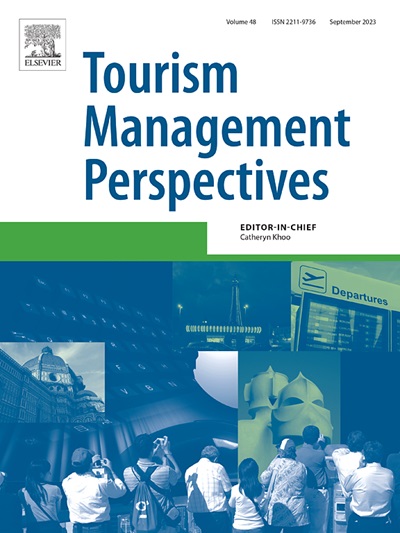为环保付出更多,牺牲更多?补偿在酒店预订意向中的作用
IF 6.9
2区 管理学
Q1 HOSPITALITY, LEISURE, SPORT & TOURISM
引用次数: 0
摘要
本文的目的是进一步了解牺牲意愿和愿意支付更高的价格预订酒店与环保实践。我们考察了个人牺牲(无补偿)与酒店客户之间共同牺牲(有补偿)的接受程度,并阐明了有效的补偿方法。本研究包括三个研究:对酒店潜在客人的问卷调查和两个实验。研究结果表明,牺牲意愿和支付更高价格的意愿主要取决于消费者的可持续态度和感知行为控制。当牺牲得到奖励时,社会规范似乎会鼓励个人预订。当顾客面对共同牺牲的提议时,补偿类型(经济补偿还是社会补偿)会影响他们预订酒店的意愿,尽管这种影响会受到价格水平的调节。本研究促进了可持续消费者行为的研究,并为酒店经营者提供了提高运营可持续性的见解。本文章由计算机程序翻译,如有差异,请以英文原文为准。
Pay more and sacrifice more for environmental practices? The role of compensation in hotel booking intentions
This paper aims to further understand willingness to sacrifice and willingness to pay a higher price for booking a hotel with environmental practices. We examine the acceptance of individual sacrifices (without compensation) versus shared sacrifices between hotel-client (with compensation), and we shed light on effective compensatory methods. The research comprises three studies: a questionnaire to potential hotel guests and two experiments. The findings suggest that both the willingness to sacrifice and to pay a higher price are primarily determined by consumers' sustainable attitudes and perceived behavioural control. Social norms appear to encourage individuals to make bookings when sacrifices are rewarded. When customers are presented with a shared sacrifice proposition, the type of compensation (economic vs. social) influences their intention to book a hotel, although this effect is moderated by the price level. This study advances the literature on sustainable consumer behaviour and provides insights for hoteliers to enhance operational sustainability.
求助全文
通过发布文献求助,成功后即可免费获取论文全文。
去求助
来源期刊

Tourism Management Perspectives
Multiple-
CiteScore
15.60
自引率
3.40%
发文量
99
审稿时长
59 days
期刊介绍:
Tourism Management Perspectives is an interdisciplinary journal that focuses on the planning and management of travel and tourism. It covers topics such as tourist experiences, their consequences for communities, economies, and environments, the creation of image, the shaping of tourist experiences and perceptions, and the management of tourist organizations and destinations. The journal's editorial board consists of experienced international professionals and it shares the board with Tourism Management. The journal covers socio-cultural, technological, planning, and policy aspects of international, national, and regional tourism, as well as specific management studies. It encourages papers that introduce new research methods and critique existing ones in the context of tourism research. The journal publishes empirical research articles and high-quality review articles on important topics and emerging themes that enhance the theoretical and conceptual understanding of key areas within travel and tourism management.
 求助内容:
求助内容: 应助结果提醒方式:
应助结果提醒方式:


